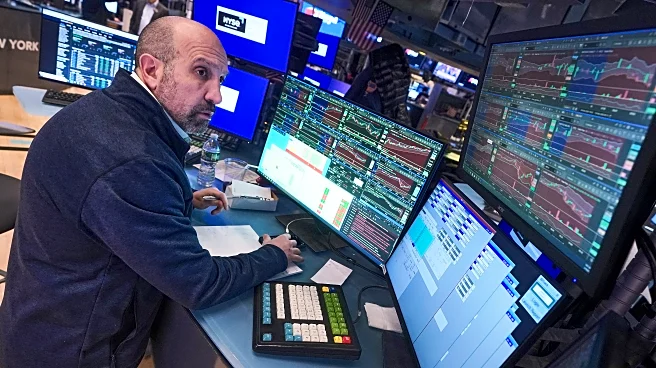What's Happening?
Elon Musk is preparing to launch a new online encyclopedia called Grokipedia, which he claims will be a significant improvement over Wikipedia. Musk has criticized Wikipedia for being too 'woke' and aims to create an alternative that aligns more with right-wing perspectives. Grokipedia is part of Musk's broader initiative under his artificial intelligence company, xAI, which he launched in 2023. The platform is expected to be an open-source knowledge repository, although specific operational details remain unclear. Musk's previous AI project, Grok, faced criticism for generating controversial and inaccurate content, raising questions about the potential challenges Grokipedia might encounter.
Why It's Important?
The launch of Grokipedia could have significant implications for the dissemination of information online, particularly in how knowledge is curated and presented. By creating a platform that potentially prioritizes certain ideological perspectives, Musk's initiative may influence public discourse and the way information is consumed. This move could also impact Wikipedia's dominance as a primary source of online information. Stakeholders in the tech industry, educators, and policymakers may need to consider the implications of AI-driven content platforms and their role in shaping public understanding and opinion.
What's Next?
As Grokipedia develops, it will be crucial to monitor how it addresses issues of accuracy, bias, and content moderation. The platform's success will likely depend on its ability to provide reliable information while managing the challenges associated with AI-generated content. Observers will be watching to see if Grokipedia can establish itself as a credible alternative to Wikipedia and how it will be received by the public and the tech community. The response from Wikipedia and other information platforms could also shape the future landscape of online knowledge sharing.
Beyond the Headlines
The creation of Grokipedia raises broader questions about the role of technology in shaping societal narratives and the ethical considerations of AI in content creation. The potential for AI to reinforce specific biases or misinformation highlights the need for transparency and accountability in digital platforms. This development may also prompt discussions about the balance between free speech and responsible information dissemination in the digital age.











